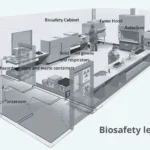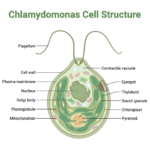Basic Microbiology 10 Views 1 Answers
What is a major source of non-protein antigens?
What is a major source of non-protein antigens?
Answered
A major source of non-protein antigens includes polysaccharides. These are complex carbohydrates that can serve as antigens. Polysaccharides are found on the surface of many microorganisms, such as bacteria and fungi, and can elicit an immune response without being proteins.
Examples of non-protein antigens include:
- Capsular Polysaccharides: Found on the surface of many bacteria, such as Streptococcus pneumoniae and Haemophilus influenzae, which can be recognized by the immune system and induce an immune response.
- Glycoproteins and Glycolipids: These molecules, which can be found on the surface of cells or viruses, often contain polysaccharide components that can act as antigens.
- Lipopolysaccharides (LPS): Found in the outer membrane of Gram-negative bacteria, LPS is a potent non-protein antigen that can trigger strong immune responses.
Non-protein antigens like polysaccharides play a critical role in the immune system’s ability to recognize and respond to a wide range of pathogens.
Did this page help you?




